MPAA and RIAA Teach Copyright at Kindergartens
mercredi 18 septembre 2013 à 21:45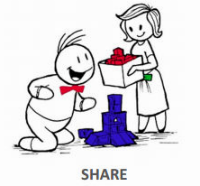 Over the past year the focus of anti-piracy enforcement has shifted from mandatory legislation to voluntary agreements between copyright groups and other stakeholders.
Over the past year the focus of anti-piracy enforcement has shifted from mandatory legislation to voluntary agreements between copyright groups and other stakeholders.
The Center for Copyright Information (CCI) is one of the pioneers in this field. Earlier this year the coalition of copyright holders and ISPs launched the six-strikes Copyright Alert System, but the non-profit company has additional plans to tackle the piracy problem.
CCI’s Executive Director Jill Lesser addresses the House Judiciary Subcommittee today, explaining what efforts the group has taken so far and what it hopes to achieve in the near future.
Lesser states that it’s too early to evaluate the effectiveness of the alert system. However, through customer research the CCI has learned some valuable insights that will help to frame their educational messages.
“To support the companies’ work, the CCI engaged in consumer research that helped us understand what consumers do and do not know about P2P technology and their level of understanding about the copyright laws.”
One of the troubling findings of the research is that most consumers don’t understand or appreciate copyright.
“We found that most consumers do not understand or appreciate concepts that many of us in the policy and legal communities take for granted – like the meaning of copyright,” Lesser notes.
These and other insights are used to better communicate their anti-piracy messaging, and CCI hopes that this will eventually lead to less copyright infringements.
“This research is helping us to better understand the drivers of consumer behavior around piracy and, we hope, will help us to improve the CCI’s effectiveness in communicating our messages and ultimately reduce the level of online piracy and increase content consumption through legal means.”
Aside from the alerts, which are targeted at the person who pays the Internet bill, the CCI is also reaching out to a much younger group of U.S. citizens. Together with iKeepSafe they have developed a new curriculum that will teach the value of copyright to California kids, starting at kindergarten.
“We have developed a new copyright curriculum that is being piloted during this academic year in California,” Lesser informs the House Judiciary Subcommittee.
“The kindergarten through sixth grade curriculum, entitled ‘Be A Creator’™, is the result of CCI’s partnership with the California School Libraries Association and iKeepSafe, a leading digital literacy organization.”
I Play Fair (large)
The pamphlet pictured above is one of the course materials that’s currently listed on CCI’s website. The “Be A Creator” ™ program was also mentioned during the launch of the Copyright Alert System, but at the time it wasn’t known that kindergartens would also be targeted.
TorrentFreak talked to Public Knowledge president and co-founder Gigi Sohn, who is a member of CCI’s advisory board. She assured us that there are several safeguards in place to assure that the end product will be objective. The advisory board was brought in for advice at various stages in the process, and the California School Libraries Association is a known fair use proponent.
“Rest assured if this curriculum is perceived as being anything but fair, it won’t proceed beyond the pilot stage,” Sohn says.
The Electronic Frontier Foundation (EFF), however, is skeptical about the educational program, and fears that it will be biased towards copyright holders.
“Based on what we’ve seen so far, that curriculum will do little to help kids understand the copyright balance. Instead, it is going to teach kids that creative works are ‘stuff’ that can be owned and that you must always check before using that ‘stuff’,” the EFF commented.
While we haven’t seen the full course materials, the EFF has a valid point. The CCI consists of copyright holders and Internet Providers who will most likely highlight other copyright aspects than free speech scholars. While there are other parties that will add balance, it can still create distrust.
Earlier this week the Internet Society warned that the CCI’s educational copyright alerts might be biased to a certain extent. The organization encouraged CCI and other groups to use neutral third parties for their educational efforts.
Whether the CCI plans to do something with this critique remains to be seen.
Source: MPAA and RIAA Teach Copyright at Kindergartens
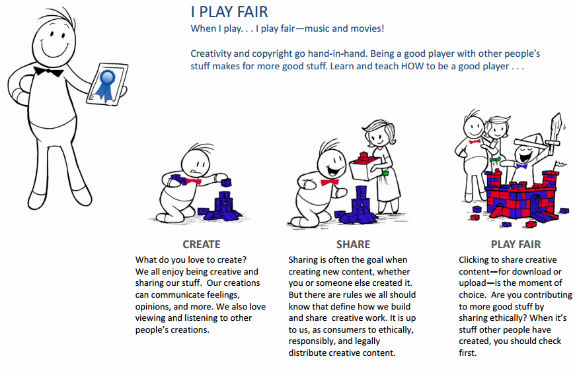
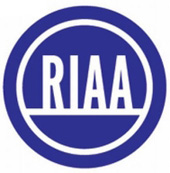

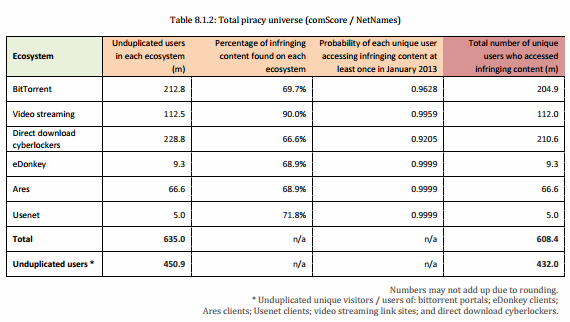

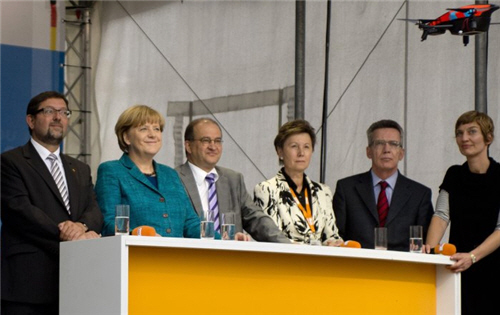
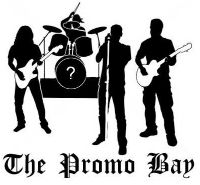 In this day and age aspiring artists have access to all the tools they need to create a decent product.
In this day and age aspiring artists have access to all the tools they need to create a decent product.